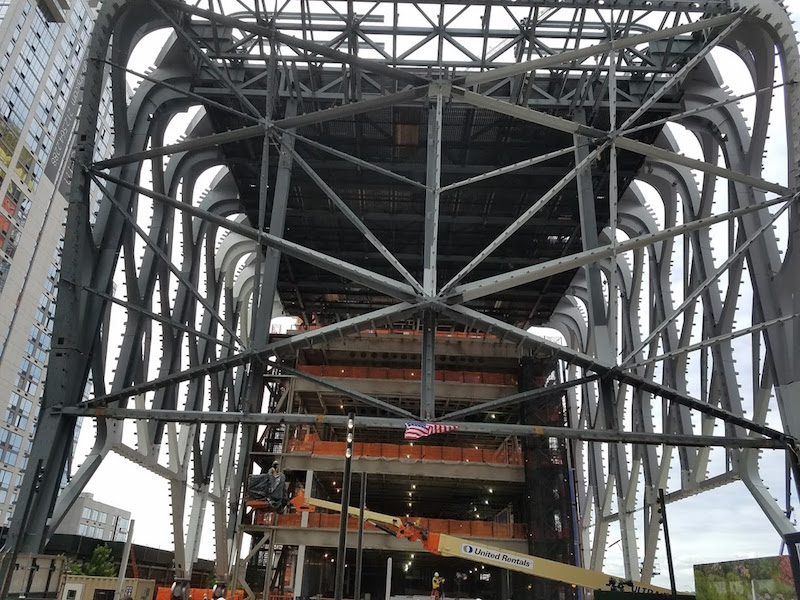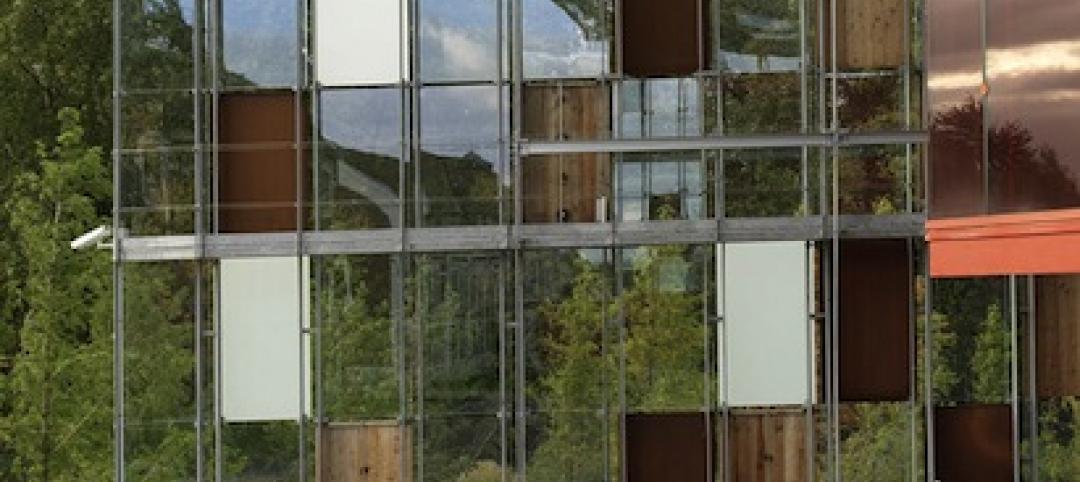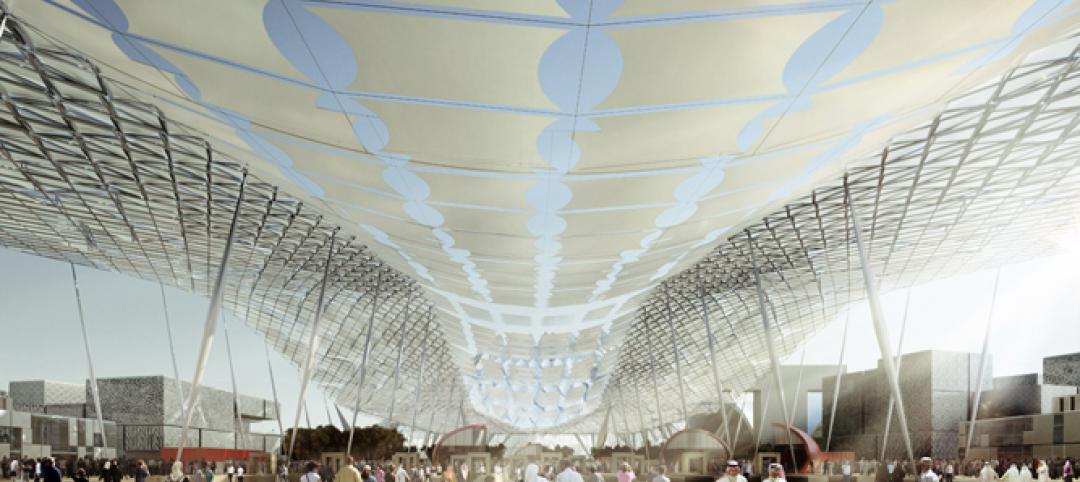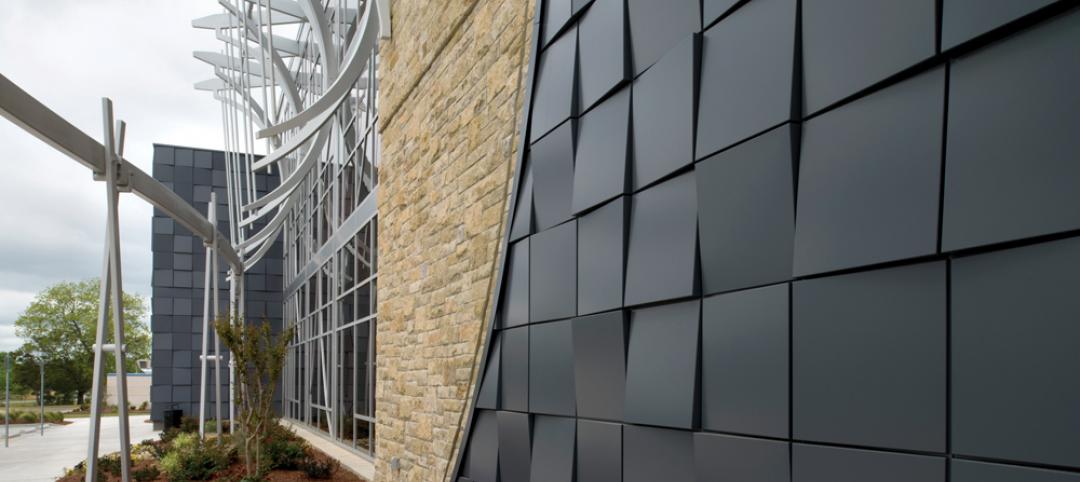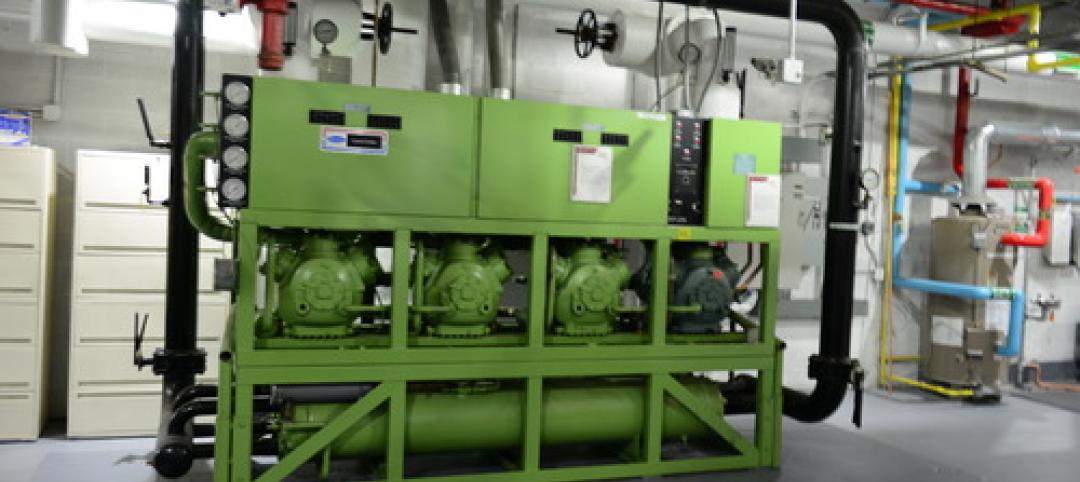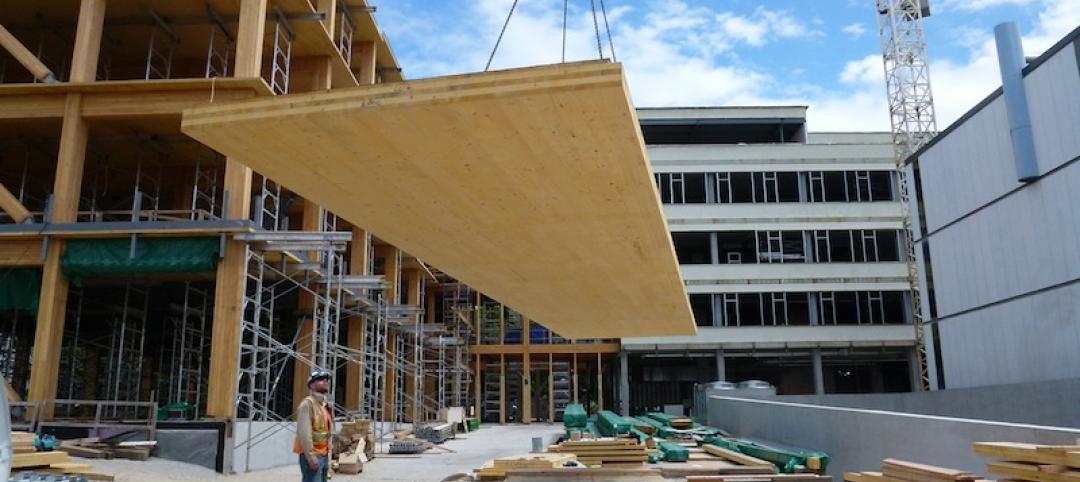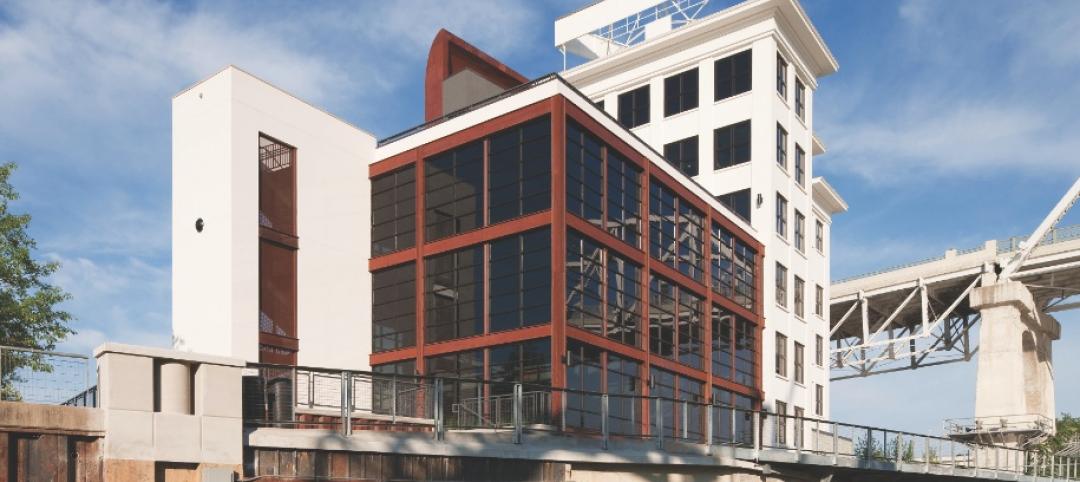On May 24, The Shed, a non-profit cultural organization that’s backed by some of the heaviest hitters in New York City, announced the completion of erecting the structural steelworks for the telescoping outer shell of a 200,000-sf artistic center, also called The Shed, under construction in Lower Manhattan’s west side.
This announcement came one day after former New York Mayor Michael Bloomberg said that he would be donating a total of $75 million to this project through his Bloomberg Philanthropies.
That brings to $421 million that amount that has been raised so far from this project’s $500 million capital campaign, according to the New York Times. The Shed’s benefactors include media mogul Barry Diller, and Stephen Ross, chairman of the builder/developer Related Companies.
While in office, the Bloomberg administration rezoned the area running roughly from 30th Street to 41st Street, and between 8th and 11th avenues for its ambitious redevelopment plan that included Hudson Yards and The Shed. Bloomberg personally spearheaded the idea of placing a cultural center in the midst of this office-heavy redevelopment. Construction of The Shed began in 2015 and should be completed next year.
When it opens in the Spring of 2019, The Shed will run along the popular High Line elevated walkway and garden. The organization is leasing the land, and will lease the building, from the city.
“This will be a platform for art, for artists to create on,” says Daniel Doctoroff, a former deputy mayor who is chairman of the board of The Shed. He said Bloomberg’s mandate for this project was that it be “unique” and put the lower west side “on the cultural edge.”
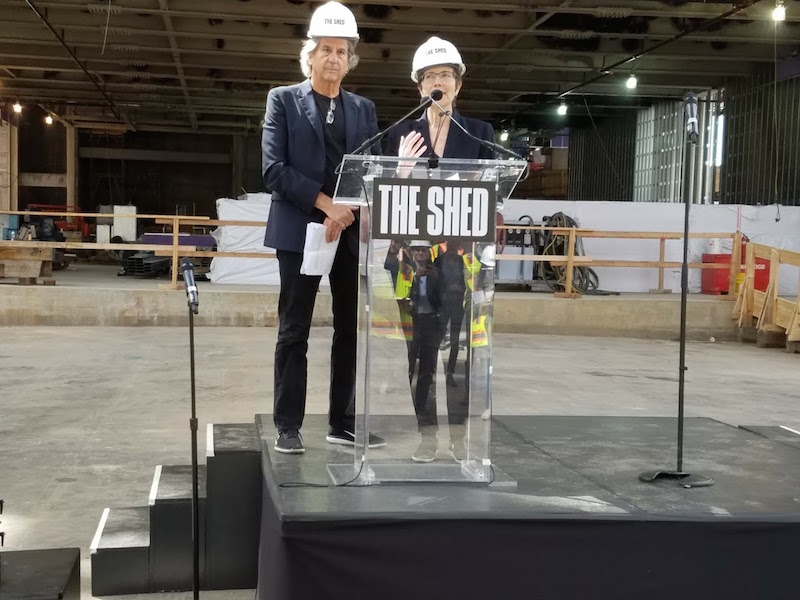
David Rockwell of The Rockwell Group (left) and Liz Diller of Diller Scofidio + Renfro talk about how The Shed was designed to be as flexible as possible to accommodate the uncertain artistic world of the future. Image: BD+C
Elizabeth Diller, a partner with Diller Scofidio + Renfro, which with The Rockwell Group designed the center, says this project forced the Building Team to think about what the arts would be like in 10 to 15 years. Their conclusion was that this is unknowable, so the building needed to be designed with the utmost flexibility.
A manifestation of that flexibility is a gigantic movable shell, open on three sides, which can be deployed over a 20,000-sf open plaza to create a 17,500-sf hall whose lighting, sound, and temperature can be controlled. The 8-million-pound shell is mounted on 6-ft-diameter wheels that roll along slide rails. The structure, operated by 90-horsepower motors, can be opened or closed within seven minutes.
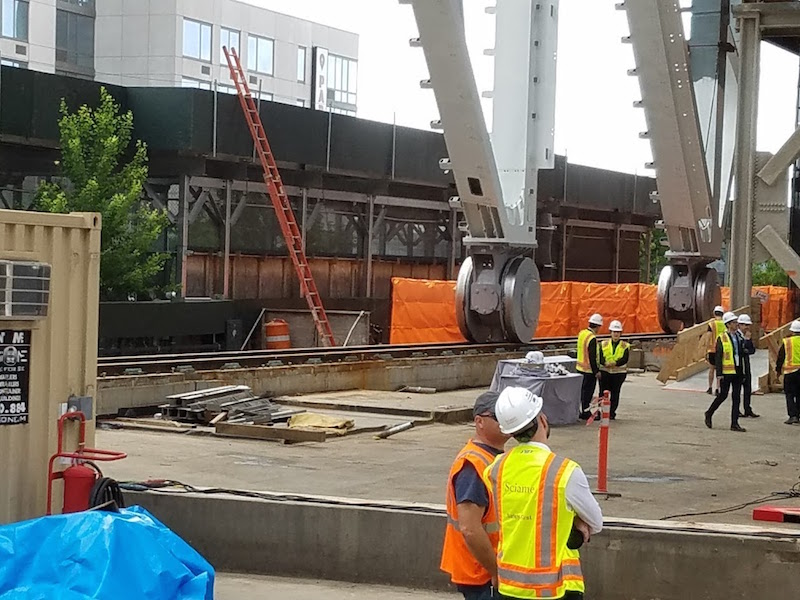
The Shed's movable shell sits on steel wheels, 6 ft in diameter, that roll on slide rails. Image: BD+C
The movable shell rises 135 feet above the plaza, and can support up to 4,000 tons of building systems and production equipment. Its exposed steel will be clad in translucent pillows of ETFE, a Teflon-based polymer, some of whose panels will measure 70 ft in length.
The plaza would have a theater seating capacity of 1,250 and a standing capacity of 3,000. (By comparison, New York’s Radio City Music Hall seats just over 6,000 people; and the city’s Beacon Theater seats roughly 2,900.)
The shell retracts into a base building with eight floors, each designed for multiple uses. The top floor will house a 3,300-sf rehearsal space, a 9,500-sf flexible events space, and a 1,700-sf labs dedicated to early-career local artists.
Below that is an 11,700-sf, 500-seat black-box theater that can be subdivided into three smaller performance spaces. The building will also include two levels of galleries with a combined 25,000 sf of exhibit space and 19-ft-high ceilings.
Back-of-house space for offices and mechanicals, dressing rooms, and storage is on the first floor.
In charge of programming The Shed is Alex Poots, the organization’s Artistic Director and CEO. Previously, Poots was founding Director of the Manchester International Festival, and Artistic Director of New York’s Park Avenue Armory. He said The Shed would “welcome artists and audiences from all walks of life.” The Shed has already launched a free, citywide residency program in dance activism for young people, Flex NYC, in cooperation with Reggie Gray of D.R.E.A.M. Ring dancers.
The organization also just hired Kevin Slavin as its Chief Technology Officer. Slavin comes from MIT's Media Lab.
Other Building Team members include Thornton Tomasetti (SE), Sciame Construction (CM), Hardesty & Hanover (kinetic engineering services), Jaros Baum & Bolles (MEP, FP), Levien + Co. (owner’s rep), Cimolai (structural steel), Cimolai Technology (kinetic services), and Stonebridge (steel erection).
Related Stories
| Dec 10, 2013
16 great solutions for architects, engineers, and contractors
From a crowd-funded smart shovel to a why-didn’t-someone-do-this-sooner scheme for managing traffic in public restrooms, these ideas are noteworthy for creative problem-solving. Here are some of the most intriguing innovations the BD+C community has brought to our attention this year.
| Dec 6, 2013
French concert hall includes integrated musical elements [VIDEO]
La Métaphone, a concert hall in Ognies, France, is a 1,980-sm facility with the unique characteristic of being a structural musical instrument. The solar-powered building incorporates musical elements in its walls, which can be played by musicians inside or outside the facility.
| Dec 4, 2013
First look: Dubai's winning bid for World Expo 2020 [slideshow]
Dubai has been chosen as the site of the 2020 World Expo. HOK led the design team that developed the master plan for the Expo, which is expected to draw more than 25 million visitors from October 2020 through April 2021.
| Nov 27, 2013
BIG's 'oil and vinegar' design wins competition for the Museum of the Human Body [slideshow]
The winning submission by Bjarke Ingels Group (BIG) and A+ Architecture mixes urban pavement and parkland in a flowing, organic plan, like oil and vinegar, explains Bjarke Ingels.
| Nov 27, 2013
Wonder walls: 13 choices for the building envelope
BD+C editors present a roundup of the latest technologies and applications in exterior wall systems, from a tapered metal wall installation in Oklahoma to a textured precast concrete solution in North Carolina.
| Nov 26, 2013
Construction costs rise for 22nd straight month in November
Construction costs in North America rose for the 22nd consecutive month in November as labor costs continued to increase, amid growing industry concern over the tight availability of skilled workers.
| Nov 25, 2013
Building Teams need to help owners avoid 'operational stray'
"Operational stray" occurs when a building’s MEP systems don’t work the way they should. Even the most well-designed and constructed building can stray from perfection—and that can cost the owner a ton in unnecessary utility costs. But help is on the way.
| Nov 19, 2013
Top 10 green building products for 2014
Assa Abloy's power-over-ethernet access-control locks and Schüco's retrofit façade system are among the products to make BuildingGreen Inc.'s annual Top-10 Green Building Products list.
| Nov 15, 2013
Greenbuild 2013 Report - BD+C Exclusive
The BD+C editorial team brings you this special report on the latest green building trends across nine key market sectors.
| Nov 13, 2013
Installed capacity of geothermal heat pumps to grow by 150% by 2020, says study
The worldwide installed capacity of GHP systems will reach 127.4 gigawatts-thermal over the next seven years, growth of nearly 150%, according to a recent report from Navigant Research.


